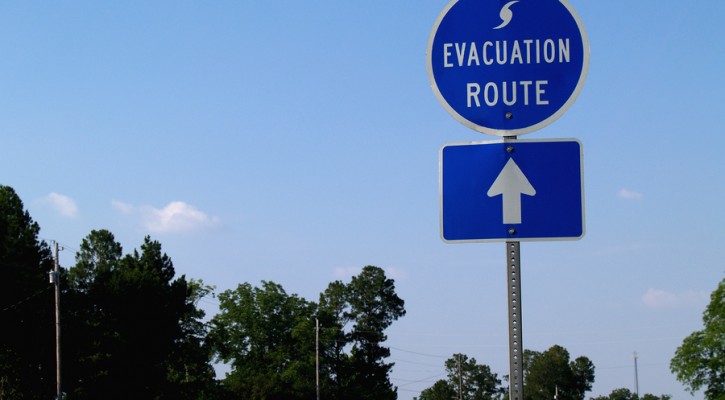
Hurricane Or Tropical Storm – Plan Ahead
August 28, 2015
While we’ve dealt with a tropical storm or two over the past few years, Florida hasn’t been hit by a hurricane in ten years. That means that a lot of people may have forgotten what it’s like to go through a hurricane and may not realize the full dangers a storm like that can pose. It’s too early to tell whether the current tropical storm Erika may develop into a hurricane but even if it remains as a tropical storm, the high winds and torrential rains can still be deadly and current models have it passing over Florida or just off the coast.
Leave Early!
If you chose to evacuate ahead of the storm, leave early! Those who remember evacuating the state as hurricane Floyd neared in 1999 may remember the nightmare on the roads as 2.6 million people tried to evacuate from coastal Florida, Georgia, and the Carolinas. At that time, Florida emergency management people were ill prepared for the numbers of people evacuating and traffic was stop-and-go from south Florida to central Georgia. One lesson learned from that storm was to close all lanes of the interstates to inbound traffic and open all lanes to outbound traffic going in one direction only.
For those in coastal areas, leaving early is critical because there will come a point in the storm when all bridges and causeways will be closed due to high winds and people who delay leaving will be stuck where they are.
Plan Ahead
If you plan to evacuate, plan ahead. With heavy stop-and-go traffic on the interstates, you may spend hours traveling between exits. To prepare for that:
- Fill your tank with gas before you leave and don’t let the tank go below half full if you can avoid it.
- Gas stations, restaurants, and stores may be overwhelmed and quickly run out of supplies.
- Take water and snacks with you.
- Withdraw cash ahead of time; with power outages, ATMs may be out of service.
Cell phone service may be disrupted. If members of your party in separate vehicles get separated:
- Select a place to meet ahead of time.
- Select an out of town family member to contact and let them know you’re OK.
Beware of flooding; especially after the storm has passed.
Even after the worst part of the storm has passed, flooding will be an issue as water rushes into creeks and rivers and they start to rise. In recent years, tropical storm flooding has washed out roads and bridges.
If there’s standing or rushing water over the road:
- You can’t tell what the road may be like underneath; it could be washed away or it could collapse under the weight of your vehicle. Turn around and find another route.
- Less than an inch of water can cause a driver to lose control.
- As little as six inches of rushing water has enough force to push your car off the road.
- Your car can float in as little as two feet of water and you could be washed away into a flooded stream or river.
Be Patient
Traffic in the evacuation zones will be heavy and drivers will be stressed:
- Remember that no one has the right-of-way; you can only give up the right-of-way to another driver.
- If another driver insists on taking the right-of-way, give it to them; it’s not worth getting into a fight over a few seconds of your time.
- If you encounter a road rage situation, do not confront the other driver. Keep your doors and windows shut and try to exit the situation as quickly as possible.
- Remember that emergency services will be overwhelmed and you may not be able to call 911 for help.
For help in planning, visit: Get A Plan
